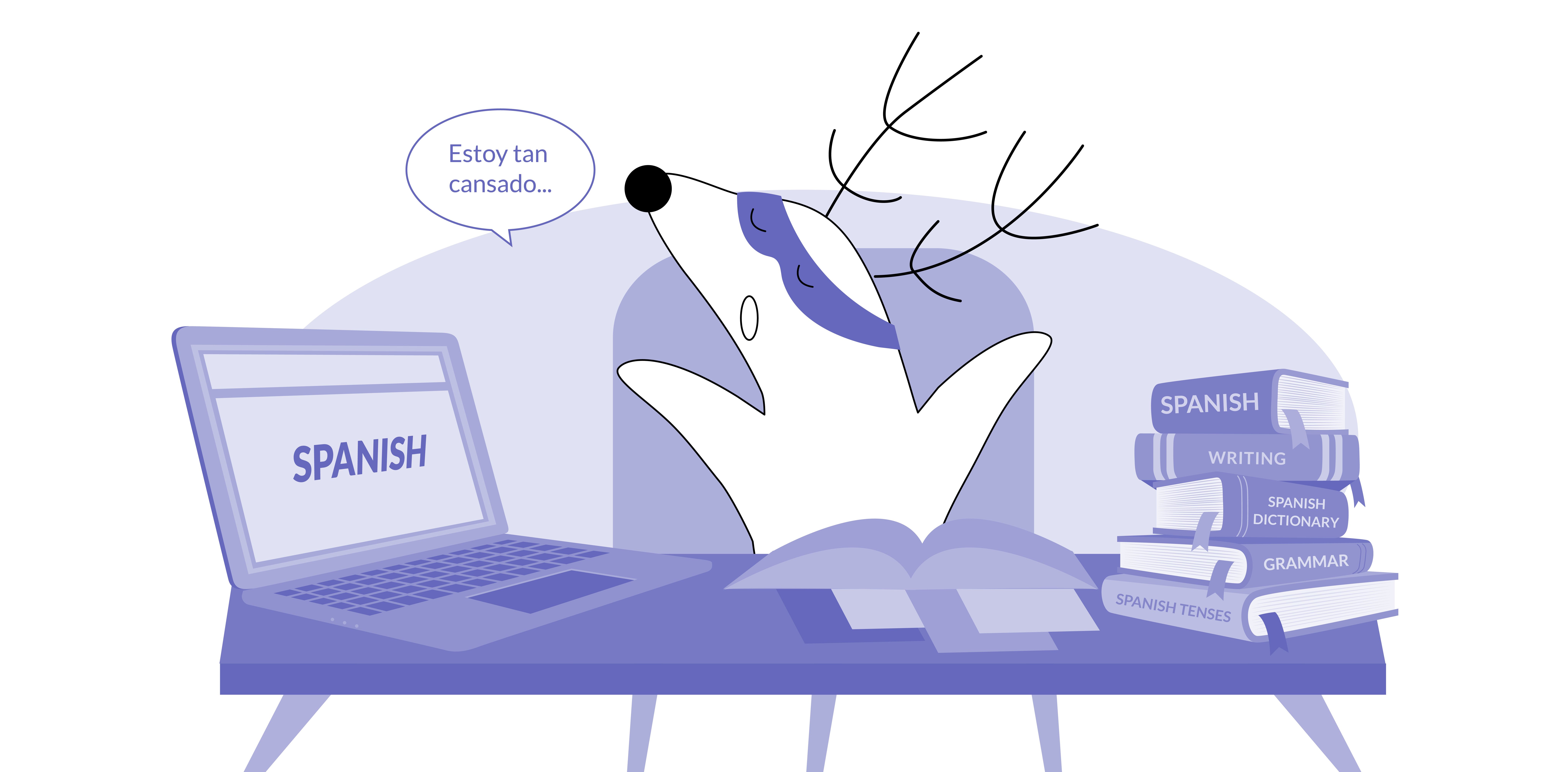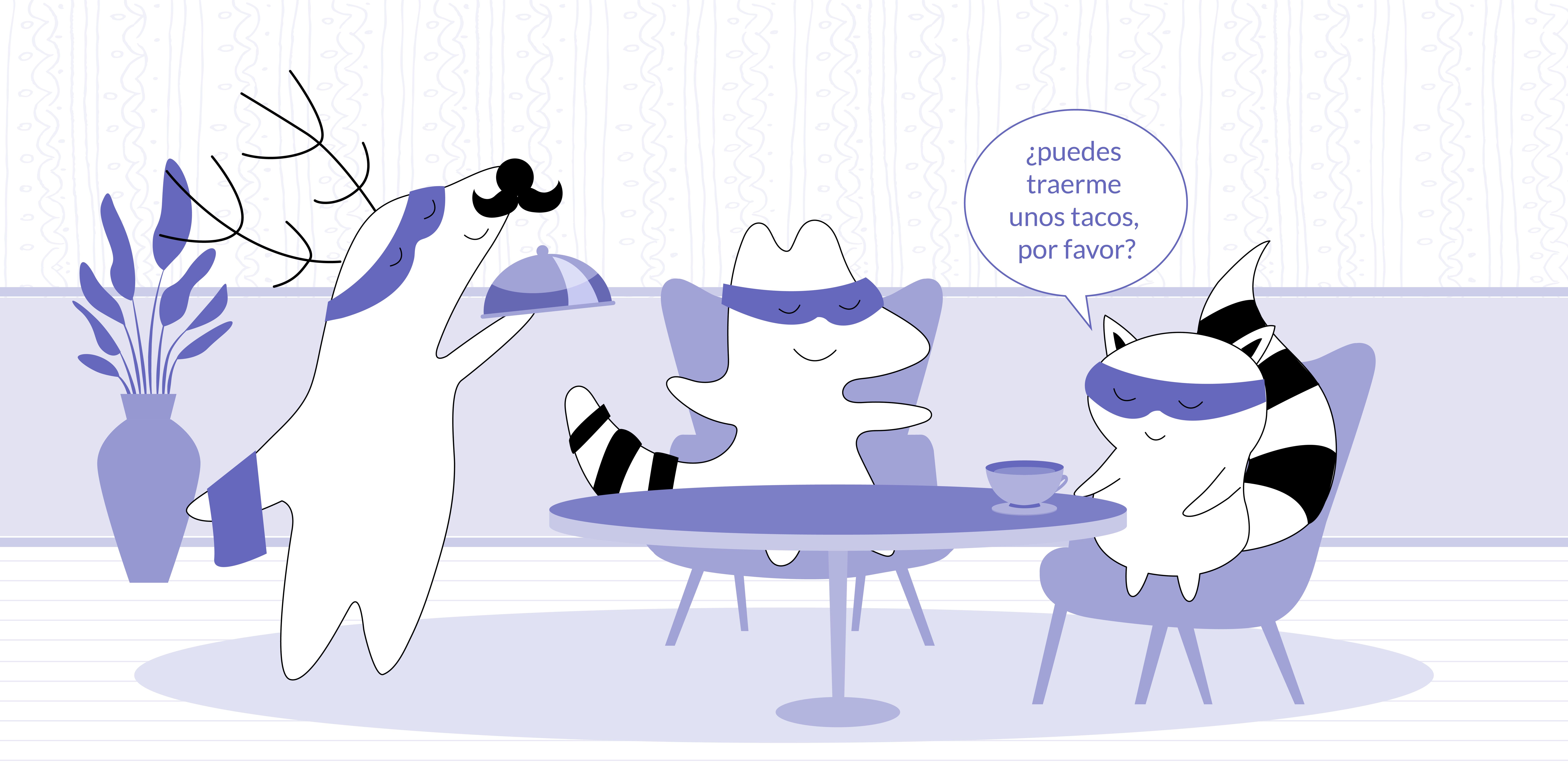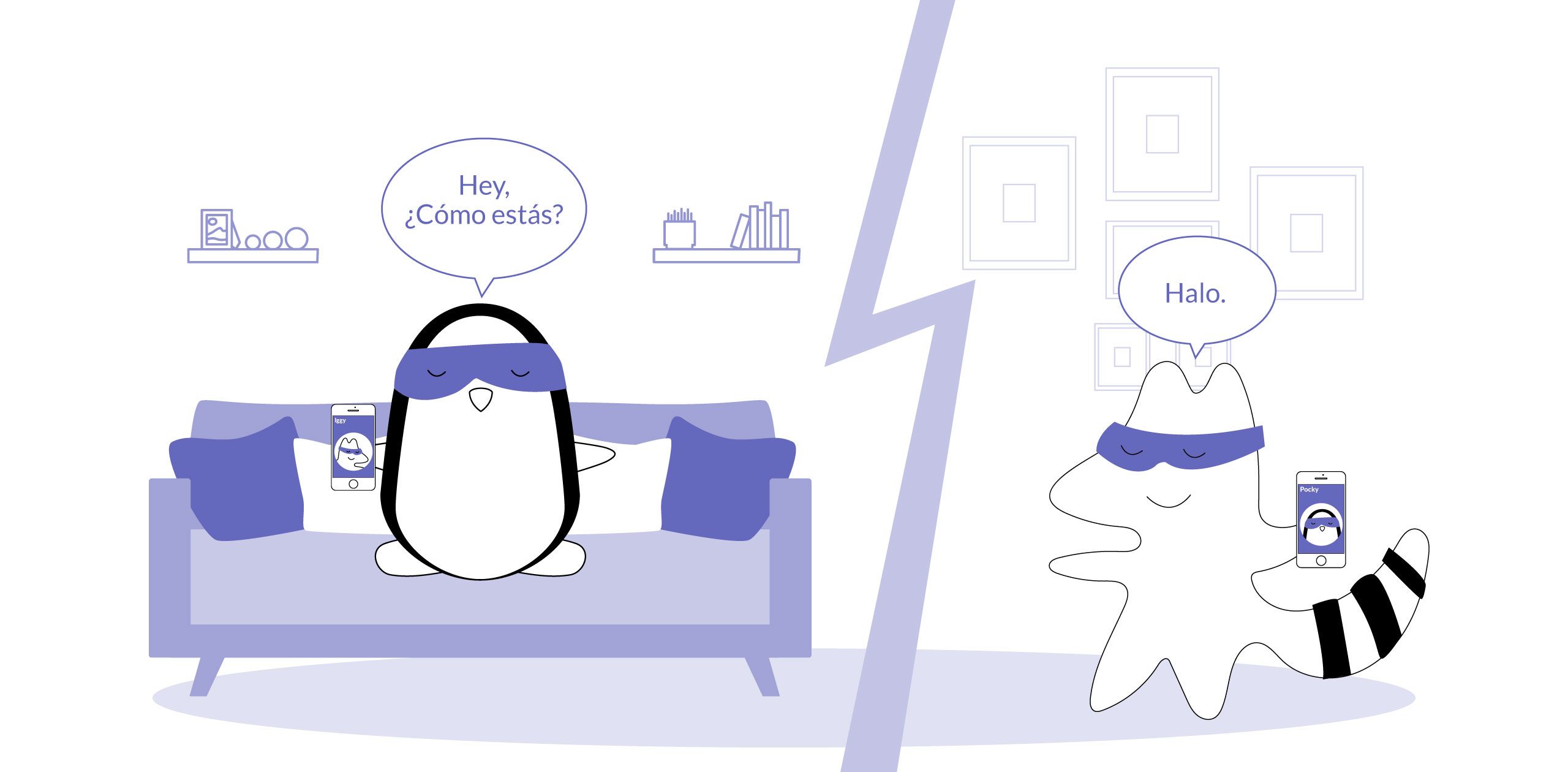
Asking "How are you?" in Spanish is a great way to connect with the people around you and find out more about their lives.
Whether you're speaking to a friend, family member, colleague, or stranger, there are plenty of different ways to ask "How are you?" in the Spanish language, with nuanced meanings, depending on the situation.
So, let's take a look at the most commonly used Spanish phrases to ask “How are you?" along with their translations and tips on how to use them.
Learn Spanish with Langster
Cultural Context
In Spanish-speaking countries, it's common to ask people how they are doing when you see them, even if you don't know them well. This is a way of being polite and showing interest in the other person. It's also common to ask follow-up questions about how someone is doing, such as "Is everything good?" or "How are the kids?"
For example, the phrase ¿Cómo estás? can also be used as a greeting, in addition to its more common usage of asking about someone's well-being. Just like many other Spanish phrases, it can be used both in informal and formal contexts.
Different Ways to Say "How Are You?" in Spanish
Here are some different phrases you can use to ask "How are you?" in Spanish, along with translations and examples of when to use them:
¿Cómo estás?
When you want to ask someone about their well-being in Spanish, the most common phrase you'll use is ¿Cómo estás?. This literally means "How are you?" but it can be used in a number of different ways.
Spanish
English
¿Cómo estás?
How are you?
If you're just starting a conversation, you can use ¿Cómo estás? as an icebreaker. This phrase is also appropriate if you're speaking to someone you know well, such as a friend or family member.
If you want to ask someone how they're doing in a more formal setting, you can say ¿Cómo está usted?. This literally means "How are you?" but it's usually reserved for professional situations, such as work meetings or job interviews.
Spanish
English
¿Cómo está usted?
How are you? (formal)
Alternatively, you can use ¿Cómo están? that literally translates to "How are they?" when you want to ask about a group of people, such as friends, family members, or colleagues.
Spanish
English
¿Cómo están?
How are you? (plural)
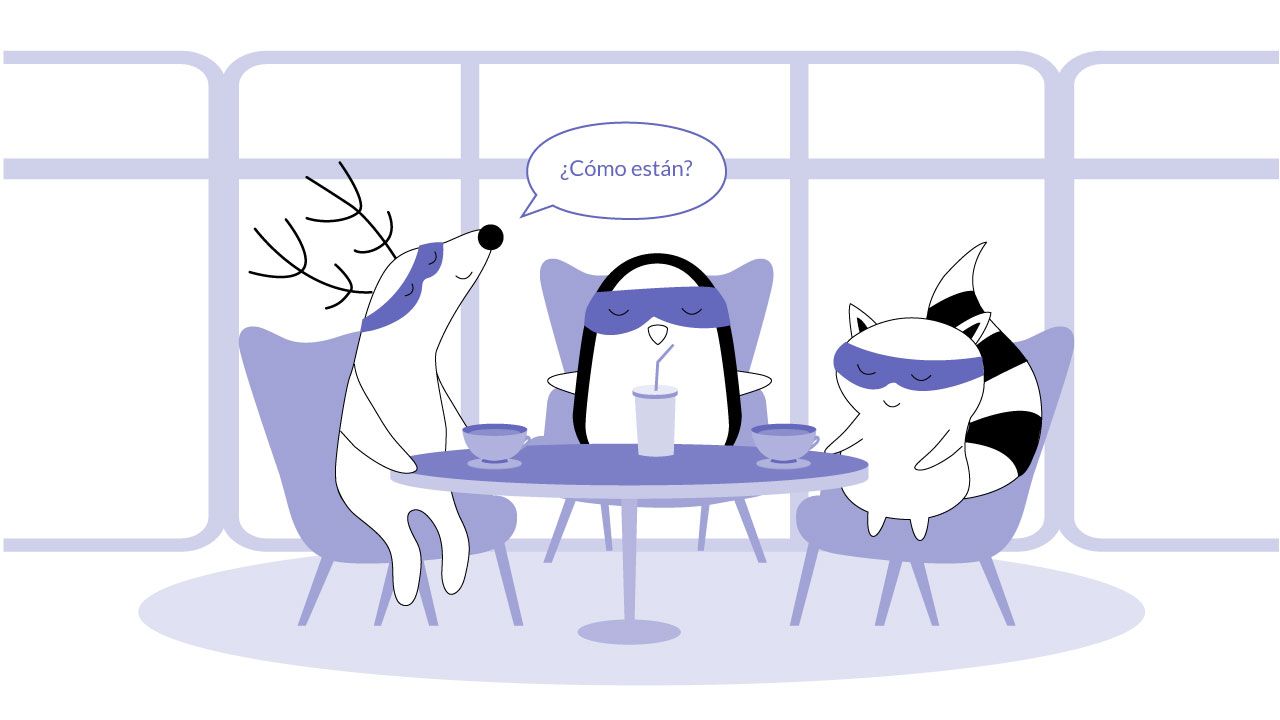
¿Cómo andas?
If you want to ask "How are you?" in a more informal way, you can use ¿Cómo andas? This phrase is commonly used with friends and family, and is also a popular choice among Spanish speakers in Latin America.
Spanish
English
¿Cómo andas?
How are you?
¿Qué pasa?
If you want to ask "What's up?" or "What's going on?", you can use ¿Qué pasa? This phrase is informal and neighborly. Use this phrase with friends, family, and acquaintances.
Spanish
English
¿Qué pasa?
What's going on? How’s it going?
Keep in mind that this phrase is often used to ask about someone's well-being, so it might not be the best choice if you're just looking for small talk.
¿Qué tal?
Another common phrase you can use to ask "How are you?" in Spanish is ¿Qué tal?, which is an informal and friendly way to start an everyday conversation. This phrase literally means "What's up?" and can be used in casual settings.
Spanish
English
¿Qué tal?
What’s up? How are you?
If you're speaking to someone you know well, such as a friend or family member, feel free to use ¿Qué tal? However, if you're meeting someone for the first time or you want to ask someone how they are in a more formal setting, it's best to stick with ¿Cómo estás? or ¿Cómo está usted?

¿Cómo va todo?
If you want to ask "How's it going?" in a more general sense, you can use ¿Cómo va todo? This phrase is informal and friendly and is often used as a follow-up to ¿Cómo estás? or ¿Qué tal?
Spanish
English
¿Cómo va todo?
How's it going?
¿Todo bien?
Another informal way to ask "How are you?" in Spanish is ¿Todo bien?, which literally means "Everything good?" This phrase is also used as a response to ¿Cómo estás?, ¿Qué tal?, or ¿Cómo te va?
Spanish
English
¿Todo bien?
Everything good?
While this phrase is mostly used in casual settings, you can also use it in professional contexts, such as job interviews or networking events. It's a polite way to ask someone how they're doing and show an interest in their well-being.
¿Cómo te va?
If you want to ask someone how they're doing in a more personal way, you can say ¿Cómo te va? This phrase is informal and friendly, and it's often used as a follow-up to ¿Cómo estás?
Spanish
English
¿Cómo te va?
How is it going?
If you're speaking to someone you don't know very well, this phrase is a good way to start a conversation and get to know them better. However, it's best to use ¿Todo bien? or another more formal phrase in professional settings.
¿Cómo te va el día?
When you want to ask someone how their day is going in a more general sense, you can use ¿Cómo te va el día? This phrase is similar to short phrases ¿Cómo estás? or ¿Qué tal?, but it literally means “How's your day going?” and you use it in slightly different contexts.
Spanish
English
¿Cómo te va el día?
How's your day going?
For example, if you're at the office and your colleague seems especially stressed out, you might ask ¿Cómo te va el día? to see if there's anything you can do to help. If you're speaking to a friend or family member, this Spanish phrase is also a good way to catch up on their day-to-day lives.
¿Qué hay de nuevo?
Whether you're meeting a friend at the park or chatting with your coworkers over lunch, you can use ¿Qué hay de nuevo? to ask "What's new?" This phrase is often used when you want to start a conversation about what someone's been doing recently and what they've been up to.
Spanish
English
¿Qué hay de nuevo?
What's new?
Like ¿Todo bien?, ¿Qué hay de nuevo? is informal, and it's commonly used in personal and social contexts. However, you might also hear this phrase on the news or read it in newspapers to learn more about current events and developments.
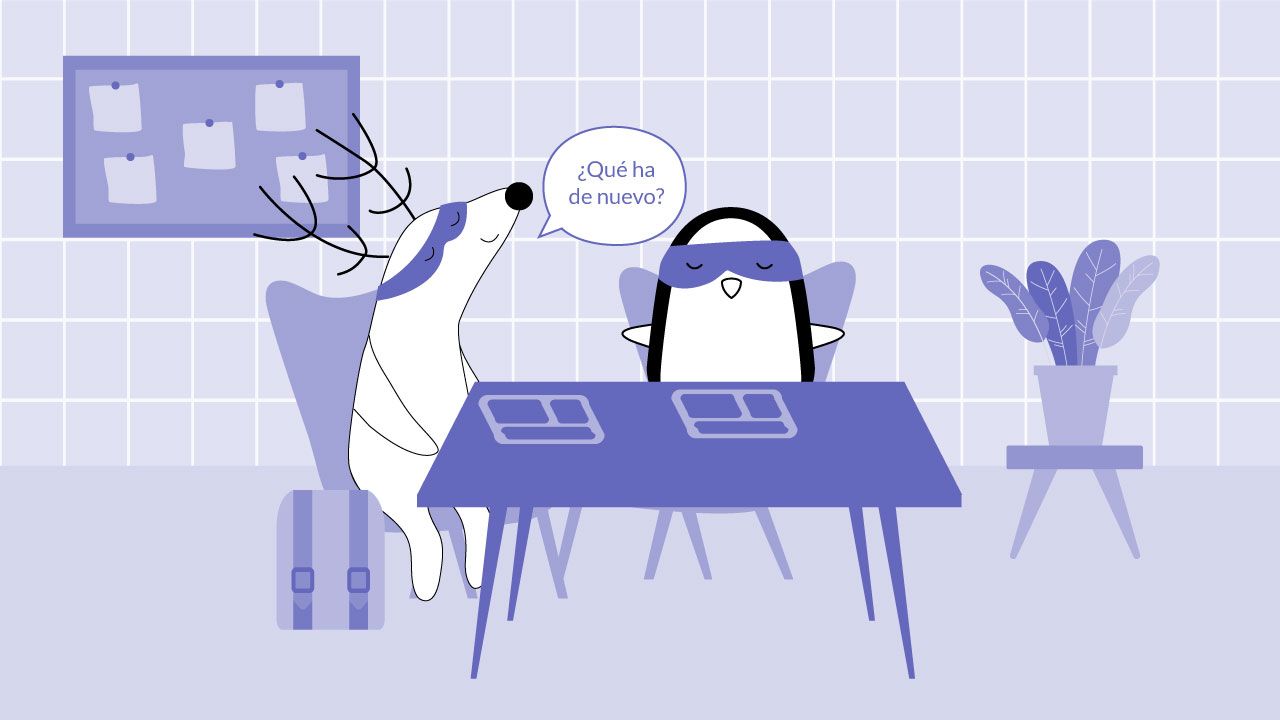
¿Cómo van las cosas?
If you want to ask "How are things going?" in a more general sense, you can use ¿Cómo van las cosas? People often use this phrase to check in and see how someone's doing.
Spanish
English
¿Cómo van las cosas?
How are things going?
You often hear it when people haven't seen each other for a while, but it can be used anytime you want to catch up on someone's life. This phrase is informal, but it can be used in both personal and professional contexts.
¿Cómo te ha ido?
If you want to ask someone how their day, week, month, or even year has been going, you can say ¿Cómo te ha ido? This phrase is informal and friendly, and it's often used as a follow-up to ¿Qué tal?
Spanish
English
¿Cómo te ha ido?
How’d it go?
You can use this phrase to catch up with a friend over coffee, or it can be a great way to start a conversation with someone you've just met.
However, you should avoid using this phrase in professional contexts and stick to more formal phrases, such as ¿Todo bien? or ¿Qué hay de nuevo? when speaking to your colleagues.
¿Qué hubo?
Finally, if you want to ask someone "What's up?" in a casual and friendly way, you can say ¿Qué hubo? This phrase is informal and often used among friends who are just catching up with each other.
Spanish
English
¿Qué hubo?
What's up?
¿Qué hubo? is also a great way to start or end a conversation. However, it's generally considered impolite to use this phrase in professional contexts or when you want to make a good first impression.
The Bottom Line
Overall, there are many different ways to ask "How are you?" in Spanish. Whether you're speaking with friends and family or meeting new people at work or school, there’s always an appropriate Spanish phrase to express interest in someone's well-being.
While the exact phrase you use will depend on the context and relationship, all of them are polite ways to start a conversation or catch up with someone in Spanish.
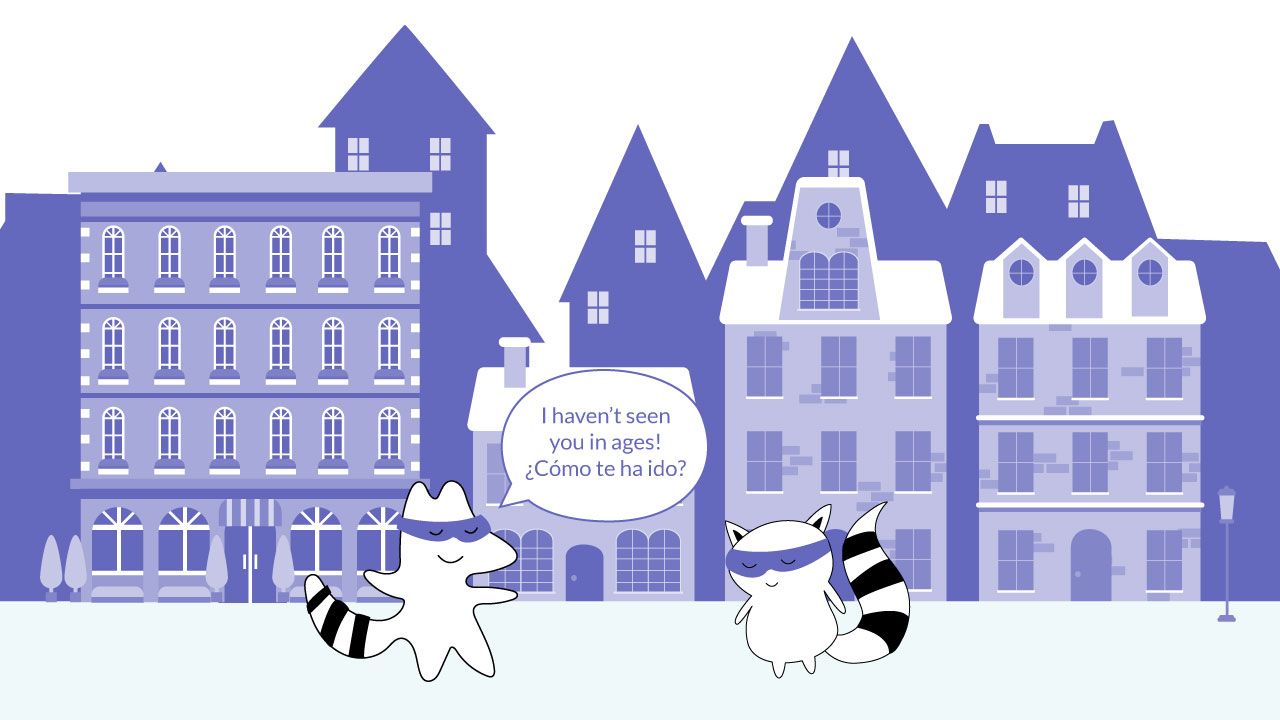
Be sure to use the phrase that fits with your relationship with the other person and download our Langster app to find more ways to say “How are you?” in everyday life. No matter which phrase you choose, don't forget to add a friendly ¡Hasta luego! ("See you later!") before you go.








